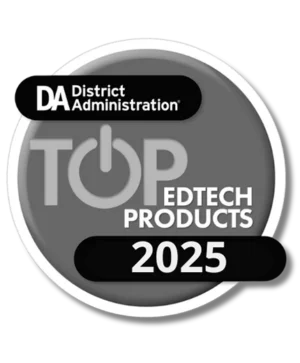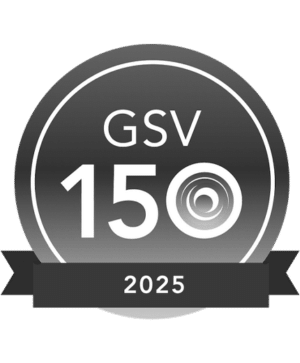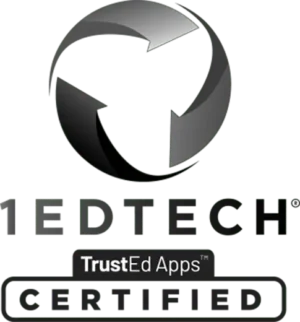
Brandy Alexander, elementary instructional specialist in the Houston, TX area, shares five best practices to make the most out of your summer PD sessions.
It’s that time of year, where the summer beverage and beach memes are flying across teachers’ social media accounts. But let’s be honest, the summer isn’t all relaxation and long naps for educators. June and July are often packed full of various summer professional development opportunities: from state and national conferences to district workshops and everything in between, educators at all levels spend an incredible amount of time during the summer growing themselves and their practices.
Despite their ubiquity, at times there can be a lack of understanding on the etiquette of attending professional learning sessions, or how to maximize their potential while there. As a professional development connoisseur, I attend or present over 150 hours of professional learning a year. This passion for professional growth and learning has helped me find certain patterns for two types of attendees: those who simply fill a spot in the room and those who really engage in the experience and make the most out of their summer learning. If you’re in the later camp but have struggled to get the most out of them, here are five tips that can really help your learning.
1) Bring a note-taking device
Whether you play for Team Pen & Paper or for Team Digital, it’s important to bring some sort of note-taking device with you. It not only shows others that you are invested in the learning, but it also allows you to refer back to your notes during the school year. Oftentimes, trainings have an abundance of ideas to incorporate into your classrooms or campuses.
Another useful tip when taking notes is to color code your pieces. When I attend multi-session conferences, I use the colors of the rainbow to take my digital notes. The first session in red, the second session in orange, and so forth. You can also color code your notes by subject if you teach more than one content area. When I was a self-contained classroom teacher I took notes for science content in green, social studies in blue, literacy in red, etc. If you have certain organizational tools you take, I hope you’ll share below in the comments!
At the beginning of the school year, teachers are often concerned with classroom set up and creating an inviting classroom climate, so specific strategies may need to be implemented a few weeks into the school year. Having good notes ensures that educators put those new practices into place, but at an appropriate time in the year. In fact, just last week I was presenting a session on high-impact technology tools for the language arts classroom, and referenced notes I took at a conference in June 2018!
2) Bring a drink and/or snack
I’ve found that I lose focus easily when I am either thirsty or hungry because our brains simply cannot take in new information when we’re either hungry or dehydrated—so make sure to slip a small snack into your bag. I have a bad habit of skipping breakfast in exchange for hitting the snooze button one more time, so for those early morning conferences, my stomach is loud by 10:00 am! If nothing else, having a spare empty water bottle in your summer training bag can be helpful for those mornings when time is lacking or (as I’ve done plenty of times) left my drink on the kitchen counter (ugh!).
In addition to a water bottle, I also pick up a few packages of small hard candies for my bag. This can be really helpful during those longer sessions or full-day trainings and they also are a great way to make new friends by sharing during the interactive parts of trainings.
Fair warning: be sure to take careful consideration of chewing gum. Some people may find noises from gum distracting, especially if you are a gum smacker or subconsciously pop small bubbles (like I do). This can also distract the presenter(s), so I have found mints and hard candies are a bit more considerate to everyone you are around.
3) Take time to network
As an instructional coach, or aspiring leader of any kind, it’s important to build your professional network, and conferences or local educator trainings are the perfect time to do so. Networking with other campuses and districts can be very beneficial, especially during the summer when most leaders are restaffing their campuses or departments. When I present sessions at conferences, or in my own district, I find that the middle and back seats fill up first, but I urge you to be thoughtful of your seat. When you enter a session or room, look for people you may not know to sit near and introduce yourself. This helps the other participants feel more comfortable if there are partner or group activities ahead, helps the presenter(s) create a warm learning environment, and helps you make connections before the session begins.
Pro tip: If you arrive early enough, I highly suggest introducing yourself to the presenter(s) if they are set up and ready for their session. This is helpful whether it’s a familiar colleague or a top-selling author. I’ve found that when I introduce myself at the beginning, the speakers will engage me even more so in the session. In return, I feel more willing to share my ideas when asked and even find myself being recognized by the speaker(s) whether it be for a tweet, a shared experience with the speaker(s), or asked to weigh in on a topic that the speaker(s) know I am familiar with.
As a shy introvert, I know this can be a work-in-progress and it’s something I’ve worked very hard at over the years. Trust me in that the benefits are really worth the effort! Remember, especially at your local district trainings, every day you are interviewing for the position you want. Modeling the skill of networking and building relationships in any setting will be noticed and help you grow professionally.
4) Put your phone away
Yes, you are probably shaking your head, but I assure you it is worth considering. Last year, I was attending a training for public speaking and presenting in which the idea was introduced that even a silenced cell phone, out on the table, can still be distracting. Our entire cadre discussed the idea and were all in agreement at how profound this notion truly is. A present phone, even silenced, can communicate that other needs are more important and the temptation it brings can be highly distracting.
For the rest of the week, we all agreed to leave our phones in our bags and referenced them only when needed outside the room. This created a very purposeful learning environment and the entire group had very positive feedback from the new agreed-upon group norm—I urge you to try it! In my experience, it isnt easy and takes a bit of self-control. You can compare it to yoga: the first time is ridiculously difficult and you are not really sure you are going to make it, but afterwards you feel amazing, and it gets easier with time!
Now, this tip comes with one caveat: when attending popular conferences, you may see many other attendees on their phone, tweeting highlights from the keynote speaker, etc. When building your professional portfolio and professional network, this can be very beneficial. If you choose to tweet during a larger training, make sure you use the common hashtag so that you can interact with others. This, however, should be the only reason to have your phone out. Scrolling through social media and texting should be left for after the training or in a more appropriate area outside the room.
5) Invest in YOURSELF—be present
I have met hundreds of educators who are attending sessions with me, some because of their own interest, and others because they are required. Regardless of the reason you’re attending, try to make the best of it. Remember that you are a smaller part of a whole room and try to be a benefit to the room, rather than a distraction.
Even if it may not be your favorite topic, try your best to find one or two ideas that you want to implement in the next few weeks. Try not to get overwhelmed with too many strategies or action items to put into place immediately. Despite the outward appearance, the presenter(s) want to do well, so being present and engaged will help not only your learning but theirs as well.
Wrapping up
Before you know it, you will be back to your summer vacation with some additional tools in your educator toolbox that will bring you continued success, but not before a solid nap, cocktail, or swimming session!
About Our Guest Blogger
Brandy Alexander is an elementary instructional specialist in the Houston area. Previously, she taught second and third grade for seven years, and worked in the education policy field. Brandy has her bachelors degree at the University of North Texas and a Master of Education Administration from the University of Texas at Austin.
Outside of her daily job, she presents workshop sessions at national and state conferences, serves as a board member for the West Houston Area Council of Teachers of English and is Director of the Community Involvement Committee for the Texas Association of Literacy Educators.
Follow her on Twitter at @ReaderLeaderBSA!
Stay Connected
News, articles, and tips for meeting your district’s goals—delivered to your inbox.






















